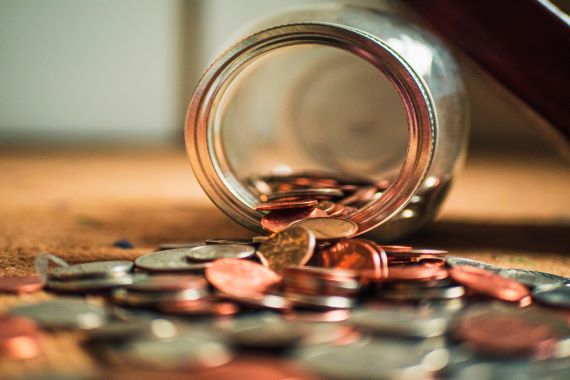The Real Winner of the 2020 Election: Cannabis A Post Election Analysis
In a boon for cannabis businesses, voters have made their voices heard in record numbers after the 2020 United States election. Now millions more Americans will have access to safe, third-party tested cannabis products.
Five additional states have approved marijuana legalization by wide margins, with four of those states voting to legalize recreational marijuana. Medical marijuana added two more states to the list, increasing the momentum behind widespread cannabis legalization.
What it’s telling us about the future for cannabis operators and manufacturers is encouraging: US voters are largely in favor of cannabis legalization.
Here are the state wins for Cannabis in the 2020 election:
- Mississippi – Medical Marijuana: A state with repressed marijuana efforts for years, two-thirds of voters said yes to medical marijuana.
- Arizona – Adult-use Cannabis: Even while a similar bill failed four years ago, Proposition 207 passed with 60% of voters.
- Montana – Adult-use Cannabis: Initiative 1-90 passed with 57% of voters.
- New Jersey – Adult-use Cannabis: The first mid-Atlantic state to legalize recreational marijuana, Public Question 1 passed with 67% of voters.
- South Dakota – Adult-use Cannabis & Medical Marijuana: South Dakota wasn’t messing around; Constitutional Amendment A passed with 54% of voters. Amendment A legalized adult-use marijuana and requires the state to pass medical marijuana and the sale of hemp laws by April 1, 2022.
With cannabis now legal in 36 states for medical purposes and 15 states for adult use, you can purchase some form of legal cannabis in a notable portion of the country. What’s more, the 15 states with legal adult-use cannabis now represent about 34% of the country’s population.
States Feeling the Pressure
Feeding the momentum are the states that want cannabis revenue but don’t want to lose an opportunity to cash in on the economic benefits from their residents who travel to a neighboring state to pick up legal weed.
New Jersey is one of the states that legalized adult-use cannabis. Governors in neighboring states like New York and Pennsylvania understand what it means for recreational legalization in their jurisdiction.
When asked by a TV producer, Governor Andrew Cuomo of NY responded, “Soon, because now we need the money.”
PA Governor Tom Wolf told his state legislature that “people will go to New Jersey” if they don’t legalize it for adult use.
PA’s Lt. Governor John Fetterman even tweeted, “There is already a thriving marijuana market in Pennsylvania. Why not make it legal? Why not make it safe? Why not make it taxable to help Pennsylvania get back on its feet?”
In another tweet the lieutenant governor goes on to say, “Legal adult-use cannabis is criminal justice reform. More than 20,000 Pennsylvanians get a criminal record every year for doing something that 1) most of us don’t even think should be illegal and 2) is legal in 11 states and decriminalized in 26 states and D.C.”
In South Carolina, State Senator Tom Davis, a long-time supporter of legalized medical cannabis, has said there is a “very, very good chance” the state will see legalization medically in 2021.
In Wyoming, Representative-elect Mark Baker sees hope that marijuana legalization in neighboring states could help efforts to pass reform in his state, “I’m very optimistic about what it could mean for the state of Wyoming,” he said.
Indiana’s Senate minority leader Greg Taylor said that legalizing cannabis would generate more revenue for the state than cigarette taxes. His point of view is that if lawmakers want to increase revenue, they should legalize and tax recreational marijuana as most of Indiana’s neighboring states have. “We’re going to be on an island out here by ourselves,” Taylor said. “The implementation of medical or recreational marijuana in Indiana would raise more money than any cigarette tax that we could ever think about.”
At the same time, though, Indiana’s Governor Eric Holcomb opposes legalization as long as marijuana is prohibited and classified as a controlled substance by the federal government.
Ah… the federal government.
The Path to Federal Legalization of Cannabis
Due to the 2020 election bringing sweeping victories for cannabis, Senators Bernie Sanders and Elizabeth Warren have called on Biden to prioritize its legalization.
But President-elect Biden has indicated support for the decriminalization of marijuana, not the federal legalization of marijuana, saying that he prefers instead that individual states make those decisions. However, Vice President-elect Harris has been supportive of adult-use federal legalization in the past.
The House of Representatives and Senate election will have an impact as well. On Friday, December 4, 2020, the House approved decriminalizing marijuana at the federal level in the first act Congress has ever taken on the issue of cannabis. The legislation, however, is not expected to pass in the Senate, so we will have to wait and see who controls the Senate after the January runoffs in 2021. If the Senate majority stays where it is, cannabis reform could come painstakingly slow. If it plays out that a Democratic majority takes the House and Senate, we could see the Biden administration federally decriminalizing cannabis in the first term.
However, without the House or Senate approval, Biden could still use presidential power and the executive order function to reschedule marijuana under the Controlled Substances Act. This allows him to pardon federally convicted marijuana prisoners and extend medical marijuana testing to let laboratories legally study the plant’s therapeutic potential.
In the end, 13+ million cannabis-friendly voters showed up to have their voices be heard and make history by getting a full range of ballot issues passed and by electing and reelecting pro-cannabis representatives. The real winner of the 2020 election: cannabis






